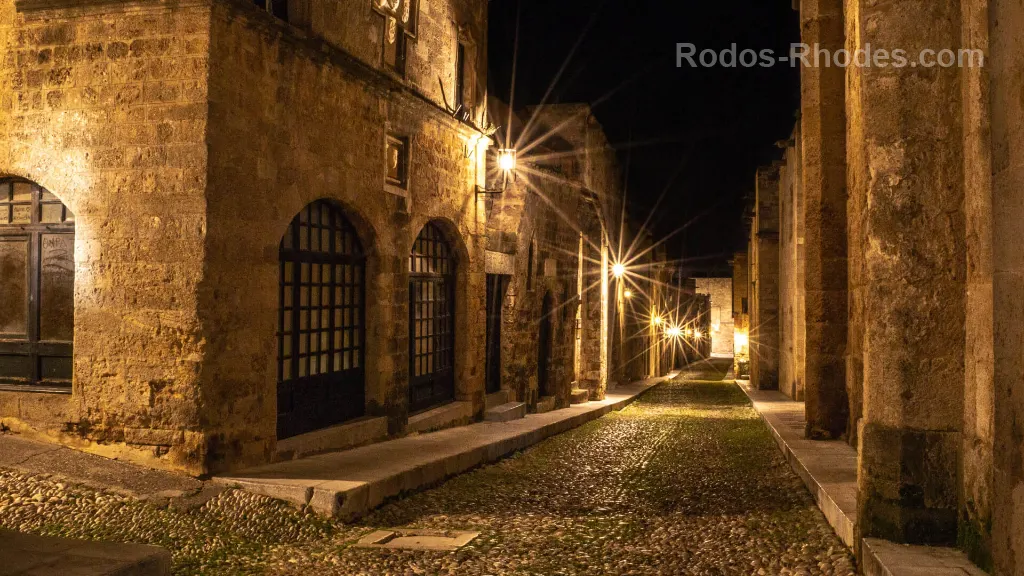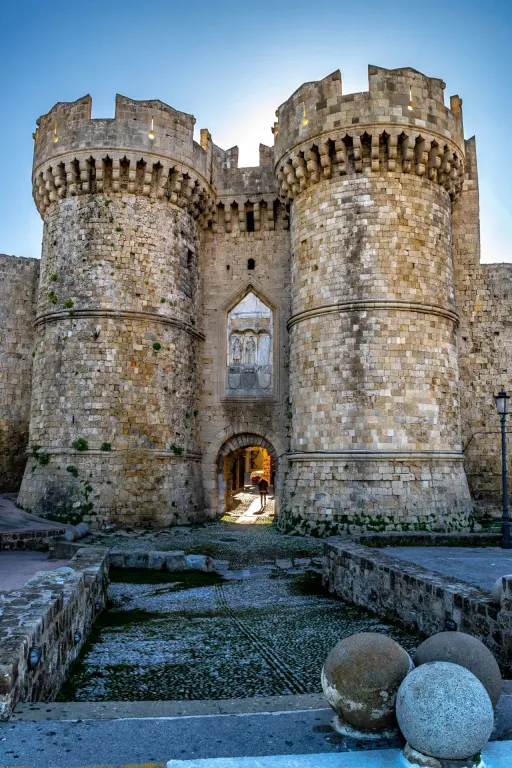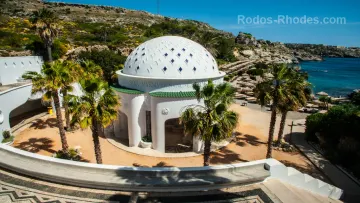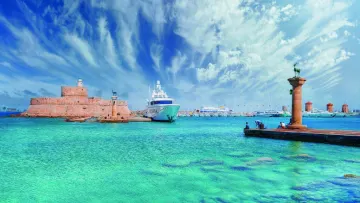
The medieval history of Rhodes dates back 2,400 years and is evidenced in its architecture, narrow streets, small squares, fortified walls, towers, palaces, museums, churches, and minarets. In 1988, UNESCO designated Rhodes as a World Heritage Site. Today, approximately 6,000 people live amidst the numerous reminders of its knightly past.

Historically, the ancient city of Rhodes was founded according to the plans of Hippodamus of Miletus. The preservation of the original fortifications continued during the Byzantine period. From 1309 to 1522 AD, the city was extensively fortified under the rule of the Knights of St. John, who built the iconic castle. It is the site of many fierce battles fought against the Ottoman conquerors.

There are 11 gates through which you can enter the old town. The Gate of Freedom is the main entrance. For the knightly orders, the Porta Marina (maritime gate) provided access to the city's harbor and the sea.

Reliefs of the Virgin, St. Peter, and St. John adorn the gate's facade, while two colossal towers with embrasures (small openings for archers) stand on either side. Whichever gate you choose to enter the old town, head first to the famous Street of the Knights. Six meters wide and 200 meters long, it's the best-preserved medieval street in Europe.

Here lies an imprint of the lives of those knights who traversed this road, conversing in its inns and praying at its sacred sites.
Source: [ via ]



